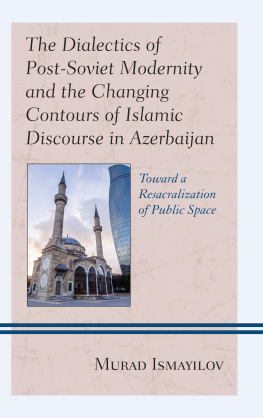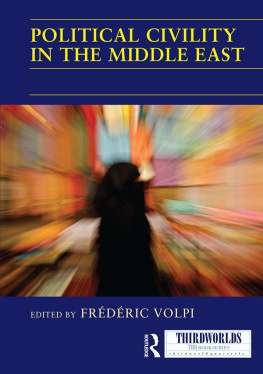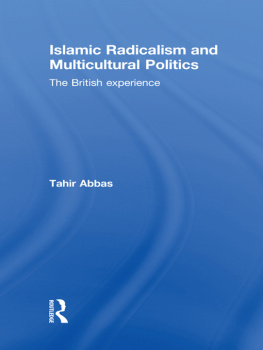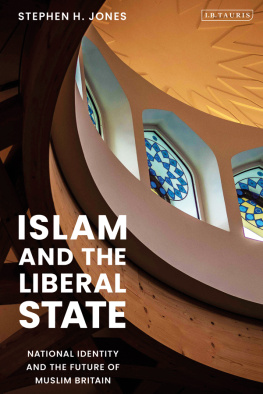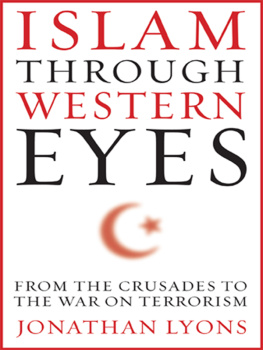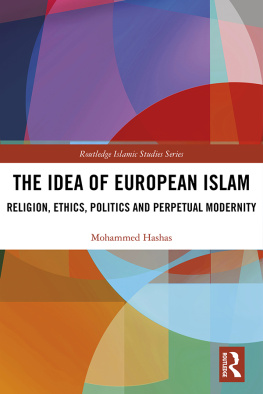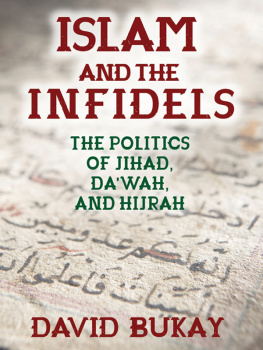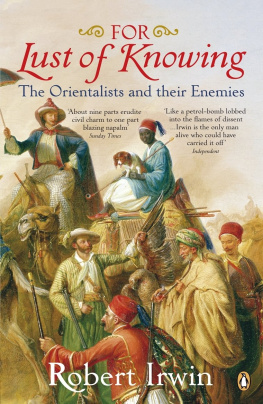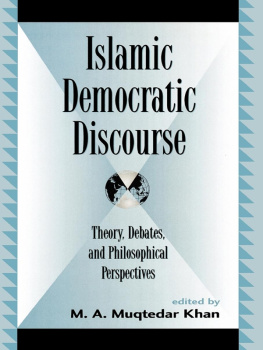Dilyana Minchevas Critical Islam challenges the essentialist West vs. Islam binary that persistently obscures what is in fact a multifaceted relationship. Defiantly presenting critical Islam as a viable third way that is neither an Orientalist nor Islamist apologetics, the author has deftly navigated between the writings of Muslim intellectuals working in the West and their critics. The books focus on both academic and literary contributions rather than the debates on political Islam per se offers a more rounded and balanced account of contemporary Muslim discourses than the misdirected polemics which, in the current polarised climate, seem to dominate discussions of the place of Islam in the contemporary world. Dr. Carool Kersten, Kings College London, and author of Cosmopolitan and Heretics (Columbia University Press, 2011)
In this impressive study, Dilyana Mincheva provides a much-needed corrective to existent studies that seek to delineate simplistically the relationship between Islam and secularism. She does so by nuancing the open space between dogmatism -- whether supplied by Islam or secularism. The introduction of the term Western-Islamic public sphere subsequently enables her to demonstrate with analytic clarity the disequilibrium between tradition and modernism.Aaron W. Hughes, University of Rochester, Philip S. Bernstein Chair of Jewish Studies, and editor-in-chief of Method and Theory in the Study of Religion
The Politics of Muslim Intellectual Discourse in the West is a case study in the literary, psychoanalytic, and theological encounters between diasporic Muslim intellectuals and secular western modernity. It centers on the simultaneous search for the possibility of both a reformation of Islamic fundamentalism and a transformation of the exclusionary limitations of western public institutions. With roots in original research in the fields of comparative religion and cultural studies, and drawing on sources in English, French, and Arabic, the author introduces the concept of the Western-Islamic public sphere. This concept defines what is at stake in the formative play of public representations where traditionalist foundations and modernist adaptations meet, clash, and produce discourse around their common disequilibrium.
Dilyana Mincheva specializes in the study of Muslim intellectual history and thought. Her most recent research is engaged with the culturological study of religious change and the ways in which it particularly informs Islams literary, artistic and political (self)-representations across a variety of media. Dr. Mincheva is currently an Assistant Professor in the Cultural Studies Department of Trent University, Canada. She is the bearer of two international awards for research excellence (2012 and 2015) granted by the Journal of Religion and Spirituality in Society.
To Constantin and Petar,
For Life!
Copyright Dilyana Mincheva, 2016.
Published in the Sussex Academic e-Library, 2016.
SUSSEX ACADEMIC PRESS
PO Box 139
Eastbourne BN24 9BP, UK
and simultaneously in the United States of America and Canada
All rights reserved. Except for the quotation of short passages for the purposes of criticism and review, no part of this publication may be reproduced, stored in a retrieval system or transmitted in any form or by any means, electronic, mechanical, photocopying, recording or otherwise, without the prior permission of the publisher.
British Library Cataloguing in Publication Data
A CIP catalogue record for this book is available from the British Library.
Library of Congress Cataloging-in-Publication Data
Mincheva, Dilyana.
The politics of Muslim intellectual discourse in the West : the emergence of a Western-Islamic public sphere / Dilyana Mincheva.
pages cm
Includes bibliographical references and index.
ISBN 978-1-84519-765-0 (hbk : alk. paper)
ISBN 978-1-78284-259-0 (e-pub)
ISBN 978-1-78284-260-6 (e-mobi)
ISBN 978-1-78284-261-3 (e-pdf)
1. Islamic countriesRelationsWestern countries. 2. Western countriesRelationsIslamic countries. 3. IslamRelations. 4. East and West. I. Title.
DS35.74.W47M56 2016
303.482176701821dc23
2015025066
This e-book text has been prepared for electronic viewing. Some features, including tables and figures, might not display as in the print version, due to electronic conversion limitations and/or copyright strictures.
Contents
Acknowledgments
This text wouldnt have been possible without the four years spent as a doctoral student in the vivid, stimulating, and intellectually challenging environment of the Cultural Studies Department at Trent University (20092013). For creating this unique atmosphere I would like to thank the directors of the PhD Program in the mentioned period who took dedicated care of me as a doctoral student: Prof. Emeritus John Fekete and Dr. Alan OConnor. Ever since then the Cultural Studies Department at Trent University has become a professional environment for me. I would like to thank my colleagues Victoria de Zwaan, Emilia Angelova, Zsuzsa Baross, Ian MacLachlan, Jonathan Bordo, Ihor Junyk, Veronica Hollinger, Yves Thomas, Liam Mitchell, Liam Young, James Penny, Diana Manole, Hugh Hodges, Michael Morse, Rachel Cyr, Jeremy Bell, Gregory Kalynik, Gozde Killic, Jeremy Leipert, Troy Bordun, and Chad Andrews for creating an exciting interdisciplinary environment that educates me every day in the courage of intellectual and ethical involvement with the public spaces and discourses of contemporary modernity.
Particularly, I would like to express my heartfelt thanks of gratitude to Dr. Davide Panagia whom I regard not only as a mentor but also as a role model, inspirational, supportive, and patient. I could not be prouder of my academic roots and hope that I can, in turn, pass on the research values and the dreams that he has given to me. I would like also to thank Prof. Emeritus Andrew Wernick, whose expertise, understanding, and vast knowledge in the field of sociology of religion added considerably not only to the writing of the following text but to my whole professional experience as a scholar of religion, culture and politics.
A very special thanks goes out to Prof. Emeritus John Fekete, without whose motivation and encouragement I would not have fought to finish this book project on time. He provided me with direction and support and became more of a mentor, and friend, than a colleague. It is through his persistence, understanding, and kindness that I am able today to see the final version of my book. I doubt that I will ever be able to convey my appreciation fully, but I owe him my eternal gratitude.
I would like also to express heartfelt gratitude to my colleague and friend, Jeremy Leipert, for the dedicated linguistic editing and comments on the entire manuscript. Thanks to him the book is written in a better English and its message is more communicative than I have ever hoped it would be.
I recognize that this research would not have been possible without the financial assistance of OGS, the Trent University Graduate Studies, the Department of Cultural Studies at Trent University (Teaching Assistantships), the financial assistance of the Doctoral Program in Cultural Studies at Trent University (Research and Travel grants), and the research funds of Canada Research Chair in Cultural Studies, and express my gratitude to those agencies.
Alexander Kiossev, Galina Goncharova and Boyan Znepolski are the three people from the Department of Cultural Studies in Sofia, Bulgaria, to whom I owe special gratitude for introducing me (many years ago) to the complex world of cultural theory and history. Their openness to intellectual experimentation and passion for research inspired me to become a scholar of cultural studies in the first place. Throughout the years their personal example has convinced me on numerous occasions that any cultural studies project worthy of its name involves commitment to complexity, contingency and imagination. Despite the fact that this book was written far away from Bulgaria and for topographical reasons far from Alexander, Galina and Boyan, their subtle intellectual presence is discernible on every page. I thank them here for inspiring me to embark on this journey and for being with me on it every step of the way. Simeon Evstatiev and Vladimir Gradev, the two Bulgarian scholars of Islam and religion, whose efforts to bridge what seems at moments unbridgeable and to comprehend what seems at moments incomprehensible, are the figures who have contributed generously to my formation and training as a scholar in the field of religion. I admire them and thank them for showing me what intellectual courage means in the face of political, spiritual and cultural ruin.


